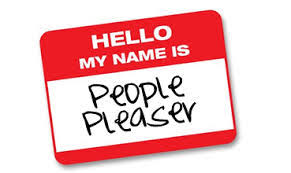
A healthy relationship consists of two people that understand the concept of each person being valuable and important. An understanding exists that we are each responsible for our own wellbeing and that I don’t have the power to make you happy or whole. A healthy relationship has an understanding that we help each other, sacrifice for each other, are supportive of each other and we must have a strong sense of self worth without taking responsibility for the other person’s self worth or self esteem. The relationship is not based on a 50/50 concept, but on a reciprocal concept of both making the effort toward a balance in the relational dynamics with healthy boundaries.
 Codependency is when a person is dependent on the approval of others for their own sense of identity and wellbeing. A codependent person has poor boundaries, the need to control resulting in them being manipulative at times, poor self worth, and they tend to take on the role of rescuer or caretaker. Oftentimes they self identify as the “fixer”. Someone who is codependent is basically looking for external validation for their own self worth. A healthy person understands that they can’t control other people’s thoughts, beliefs, or behaviors and they must find their sense of self internally, not externally.
Codependency is when a person is dependent on the approval of others for their own sense of identity and wellbeing. A codependent person has poor boundaries, the need to control resulting in them being manipulative at times, poor self worth, and they tend to take on the role of rescuer or caretaker. Oftentimes they self identify as the “fixer”. Someone who is codependent is basically looking for external validation for their own self worth. A healthy person understands that they can’t control other people’s thoughts, beliefs, or behaviors and they must find their sense of self internally, not externally.
Codependency is an unhealthy psychological belief system (usually developed in childhood) and set of behaviors that can exist in all types of relationships including marriage, colleagues, co-workers, parent/child, relatives, and friendships. Someone struggling with codependency is usually a very responsible person. In fact, they take on responsibility that is not theirs. They tend to be very caring and nurturing to the extent of sacrificing their own needs and wants to take care of others. Sometimes they are referred to as enablers when they are in a relationship with an addict and they believe they are helping the addicted loved one by giving them money and doing things for them that they can do for themselves. These behaviors and mindset are actually harming their loved one by contributing to the factors that keep the person stuck in addiction.
Below are signs you may be struggling with Codependency:
Someone has an issue or shares a problem with you and you feel responsible for solving their problem for them.
You find yourself giving advice whether you are asked for it or not.
You have a difficult time expressing your own opinion if it differs from others.
You have been called or self identify as a “people pleaser”.
You live in the thought life of “if I do this, then he/she will do that” or “if I do this, then things will get better”. You tend to live in the hope of what will be rather than the reality of what is.
You have difficulty being alone. You make decisions based on the fear the relationship will end.
Feeling unappreciated or used.
You overextend yourself. You take on extra work on a regular basis.
Tendency to be very hard on yourself.
You struggle to make decisions without the approval of others.
You have poor boundaries. You say yes when you really want to say no out of fear of hurting someone’s feelings. You will neglect yourself and your responsibilities to be available to help others.
Spend too much time worrying.
You feel victimized in relationships, you believe people are doing things to you verses taking responsibility for your own life and decisions.
Perfectionism.
You stay in friendships, committed relationships, and jobs when you know you should leave.
If you identify with the above signs, you are vulnerable to being abused in your relationships due to your need to please others and the pattern of minimizing your own needs.
You are valuable.
You can change.
Consider talking to a person you trust about your concerns you may be identifying with codependency.
Educate yourself on boundaries so you can begin to establish and maintain healthy boundaries.
Consider working with a therapist to identify what impacted your early development and how to take the steps to break the codependent patterns while developing a healthy sense of self worth and healthy boundaries.
Consider joining a 12-step program like Codependents Anonymous (CoDA).
